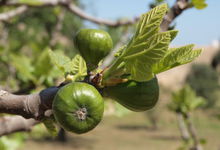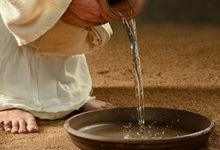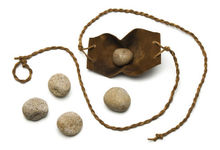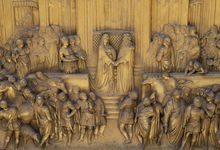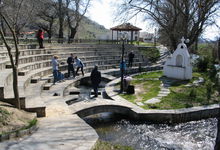Put on tender mercies: from tunics of skin to robes of white
It is all about love and nakedness, but it has nothing to do with sex. After all, when the outer layers come off in biblical language, it is not the body, but the soul, that comes into view. All of this revolves around the question: should we cover up or expose others?

Now they found themselves standing there without so much as a shirt or a pair of pants, confronted with toil, pain, and death—instead of their all-inclusive Garden of Eden. Such were the prospects for the “man” and the “mother of all who live”, for ādām and hawwāh—better known to Christians as Adam and Eve.
They had violated the one rule they had been given, and thereby destroyed the very foundation of their lives. Yet even before they could experience the full brunt of their new state of distress and sorrow, someone was already looking after them: “Also for Adam and his wife the Lord God made tunics of skin, and clothed them” (Genesis 3: 21). They were not naked when they left Paradise.
This shows us three things:
- God not only acts as the Creator, who withdraws from the scene after having completed His work, but rather accompanies mankind as their provider, sustainer, and protector.
- human action—for example, the coverings of fig leaves they made for themselves—will not suffice. True aid requires the action of God.
- God allows for the fact that this aid will come at a cost: to create a tunic, an animal had to die.
Man in need of redemption, his full dependency on God’s care, and the divine act of redemption in the sacrifice: from here on in, we can almost see a line pointing straight to Jesus Christ—from the idea of being “clothed with righteousness” in the Psalms to the notion of “putting on the new man” in the letters of Paul, all the way to the white robes washed in the blood of the Lamb mentioned in Revelation.
With and without shame
“Blessed assurance: Jesus is mine!” But what does this mean for my daily life as a Christian? The story surrounding the great Fashion Designer also provides an answer for that! However, we must take a closer look at the original text, especially when it comes down to the bare facts.
The Hebrew language uses two distinct words for the term “naked”, namely ārôm and êrom. One of these is found in Genesis 2: 25 in the last sentence before the creation of man. The other one is found soon thereafter in Genesis 3: 7, directly after the fall into sin. The only difference can be seen in the context: at first, Adam and Eve are not even a little ashamed of their nakedness, but later on they are very ashamed indeed.
Ashamed before whom? Before God, before whose sight no creature can be hidden (Hebrews 4: 13)? Or perhaps before themselves? Not only that! After all, the Hebrew word bôš always indicates reciprocity: they were ashamed before one another. One person was ashamed in front of the other person. They had been exposed. And it is precisely this exposure that God covered up. This raises a question for us: what do we do when our fellow human beings are exposed?
Exposing others as a popular sport
Even today, there are many people who unintentionally expose themselves. And others respond to it, each in their own way: perhaps someone did not quite think something all the way through before speaking, and immediately a torrent of derision rains down upon him. Perhaps others battle a full figure, and find themselves constantly exposed to body shaming in public. Perhaps another has achieved less than his peers and is thus ridiculed in front of the whole world.
And that is how the exposed deal with their own nakedness: by tarnishing others, playing tricks, and applying deceit. In case of doubt a covering of fig leaves might have to do: “Everyone else is to blame!” Just like the situation in Paradise at the time: “But it was Eve! She made me …” — “But it was the serpent who …”
Compassion and mercy provide shelter and cover
“Wretched, miserable, poor, blind, and naked”—this vocabulary from Revelation 3: 17 describes what the Bible primarily means when it refers to nakedness, namely decrepitude, helplessness, and exposure. Is this not a pitiable state? In other words, is it not worthy of compassion and mercy?
The answer to this is not only given by God, the Father, who personally covers the nakedness of the first human beings. The answer is also concretely given by His Son, Jesus Christ, in His end-time discourses to the disciples in Matthew 25: “I was naked and you clothed Me.” And after all, “Inasmuch as you did it to one of the least of these My brethren, you did it to Me.”
Photo: Antonioguillem / fotolia
Article info
Author:
Date:
Keywords:
Andreas Rother
24.07.2018
Bible Study
, Divine service,
Doctrinal instruction








